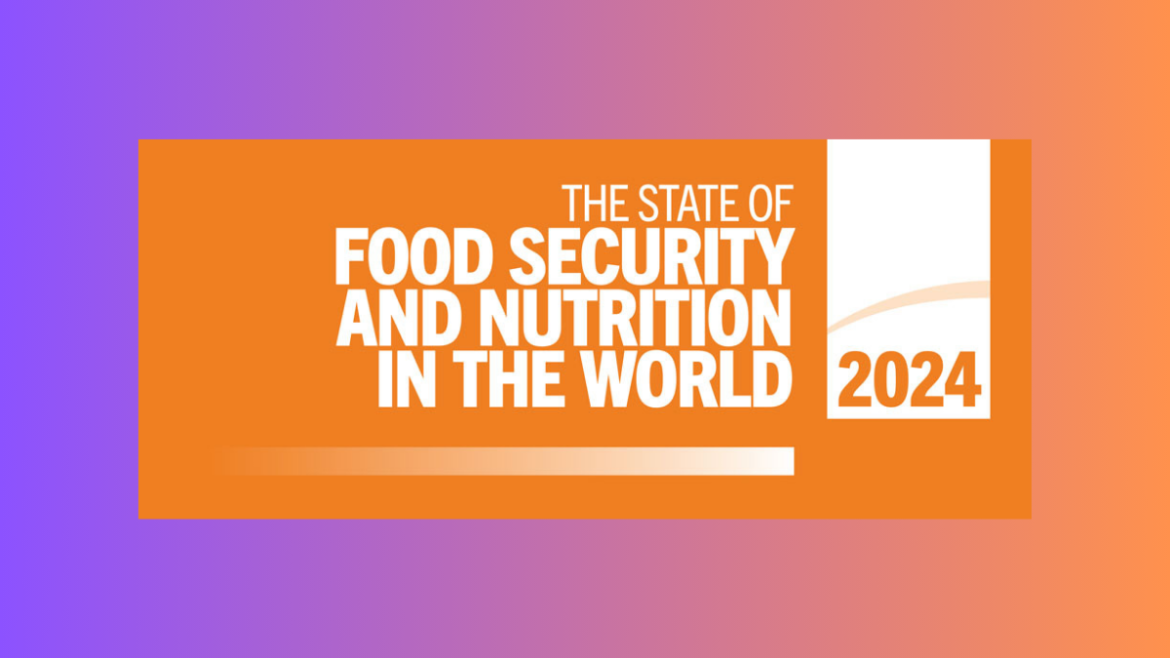By Muhammad Amaan
No fewer than 172 million Nigerians were unable to afford a healthy diet, the State of Food Security and Nutrition in the World 2024 report has indicated.
This was stated in a report by Food and Agricultural Organisation (FAO), International Fund for Agricultural Development (IFAD), United Nations Children’s Fund (UNICEF), World Food Programme (WFP) and World Health Organisation (WHO), titled ‘Financing to end hunger, food insecurity and malnutrition in all its forms,’ which was published recently.
According to the report, as of 2022, about 172 million Nigerians were unable to afford a healthy diet, which was about 78.7 per cent.
It showed that the proportion of the population unable to afford a healthy diet had been increasing steadily since 2017.
From 143.8 million in 2017 to 149 million in 2018, growing to 149 million in 2019 and rising sharply to 162.5 million in 2020.
It noted that 167.4 million Nigerians could not afford a decent meal in 2021 and it hit 172 million in 2022.
According to the report, as of 2022, a Nigerian, who could afford a healthy diet, would need about $3.83 per day to be able to do so.
Also, the amount needed for a healthy diet since 2017 has been progressively increasing for years.
At the end of December 2022, the naira closed trading against the dollar at N461.5/$1 on the official Investor and Exporter window, indicating that a healthy meal per day would cost about N1,767.55.
The report stated that Nigeria had the fifth highest cost of a healthy diet in the West African sub-region, behind Mauritania ($4.86 per day), Ghana ($4.29 per day), Cabo Verde ($4.07 per day) and the Niger Republic ($3.96).
Meanwhile, the latest ‘Cost of Healthy Diet’ report, produced by the National Bureau of Statistics and the Global Alliance for Improved Nutrition, showed that the national average cost of a healthy diet rose to N1,241 per adult per day in June 2024 from N858 in January 2024.
“The main drivers of this increase in CoHD are vegetables, legumes, nuts and seeds, and starchy staples. Starchy staples, on the other hand, saw the smallest increase in price month-on-month,” the report said.
The 2024 edition of the Global Report on Food Crises, an annual report that provides analysis and evidence on acute food insecurity requiring urgent humanitarian assistance to save lives and livelihoods, identified 19 protracted major food crisis countries.
“These 19 countries have been in a major food crisis for the past eight years, and six countries (Afghanistan, Democratic Republic of the Congo, Ethiopia, Nigeria, Syrian Arab Republic and Yemen) have consistently ranked among the top ten in terms of the population affected, with 108 million people facing acute food insecurity.
“Nearly 282 million people faced high levels of acute food insecurity in the 59 food-crisis countries/territories that were included in the analysis in 2023. The five countries with the largest numbers of people facing high levels of acute food insecurity were, in descending order, the Democratic Republic of the Congo, Nigeria, Sudan, Afghanistan and Ethiopia.
“While the countries with the largest share of the analysed population facing high levels of acute food insecurity were Palestine (Gaza Strip), South Sudan, Yemen, the Syrian Arab Republic and Haiti,” part of the report read.
The report called for improvements in the execution and quality of budget spending on food security.
“Even if more financing for food security and nutrition becomes available, changes and reforms are necessary to guarantee higher execution and quality of spending.
The larger the required budget reallocations (e.g., Burkina Faso and Nigeria), the further away the country is from the optimal budget allocation. Optimal budget reallocations, irrespective of their size in each country, can significantly increase the value of public money,” it added.
This report came out amid a new policy by the Federal Government to manage the food security situation in the country.
In early July, Federal Government announced a 150-day duty-free import window for food imported through land and sea borders.
Among other things, the latest directive is expected to reduce demand for forex by food importers.
In 2023, Nigerians spent $2.13bn to import food items from foreign countries.
Speaking at the press conference held in Abuja, the Minister of Agriculture and Food Security, Senator Abubakar Kyari, said that 150 days of duty-free imports would be valid for commodities, including maize, husked brown rice, wheat, and cowpeas.




